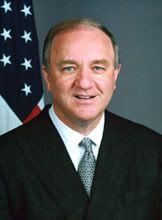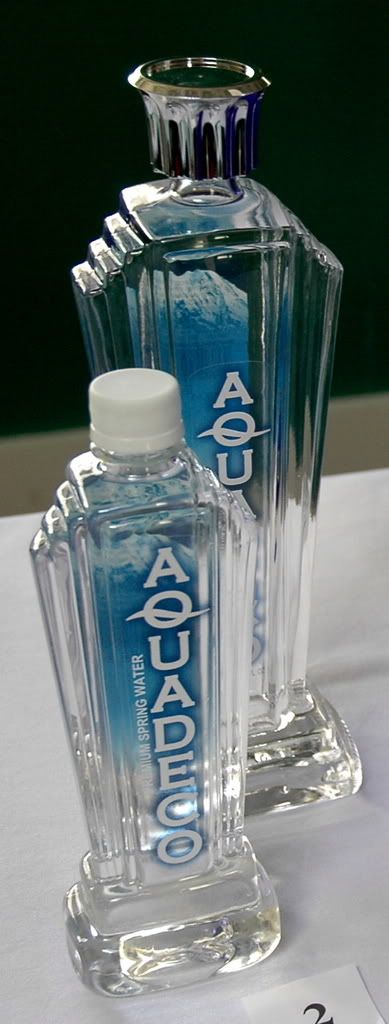From Washington, in brief
By Emil Sanamyan
Armenian Congressional Caucus co-chairs weigh in on Armenia elections
In a letter sent to Armenia’s President Robert Kocharian dated February 23, and made available to the Reporter, Congressmen Joe Knollenberg (R-MI) and Frank Pallone (D-NJ) related U.S. officials’ concerns that “needed improvement [in upcoming elections] may not be achieved without a change in pre-election pace and emphasis by relevant Armenian authorities.”
The Armenian Caucus co-chairs acknowledged President Kocharian’s pledge to conduct free and fair elections, and offered to assist in achieving this outcome. At the same time, the congressmen warned that unless substantial progress is registered, the $235 million aid program to Armenia, under Millennium Challenge Account (MCA), could be suspended.
On the same day, Congressmen Knollenberg and Pallone sent a letter to Secretary of State Condoleezza Rice requesting a briefing on the U.S. pre-election assistance program in Armenia. Congressional sources familiar with the exchange told the Reporter on March 13 that while no formal response has been received, the State Department is “drafting a response” and promised to brief the congressmen “in the next several weeks.”
U.S. Aid administrator sees “great progress” in Armenia

Rep. Knollenberg reiterated his election-related concerns during the March 8 House Appropriations Subcommittee on Foreign Operations hearing with the director of U.S. Foreign Assistance, Amb. Randall Tobias. Rep. Knollenberg raised the issue of U.S. pre-election assistance to Armenia and asked if “the Armenian government could do more to ensure a free and fair election,” in part to guarantee the continuation of performance-based MCA assistance.
Amb. Tobias responded: “from everything I know about the [U.S. pre-election assistance] program it has been very successful. Armenia is a place that reflects significant progress in terms of the indicators measured by the Millennium Challenge Corporation.” While noting that more could certainly be done, Tobias stressed that “great progress has been made in Armenia.”
Another Subcommittee member, Rep. Adam Schiff (D-CA) questioned the Administration’s Fiscal Year 2008 budget request, which reduced Armenia’s allocation under the FREEDOM Support Act (FSA) to $35 million (a nearly 50 percent decline from the FY07 FSA allocation). Tobias countered that taking into account the $60 million that Armenia is due to receive under MCA in FY08, U.S. aid to Armenia, under both MCA and FSA, would “increase by 34 percent.”
Armenian-American organizations, however, do not find this rationale plausible. USAPAC Executive Director Ross Vartian stressed last month his opposition to the proposed FSA aid cut, arguing that the Administration should not be “counting the MCA grant against [other aid to] Armenia.”
State Department assesses Armenia’s human rights practices
The annual congressionally-mandated State Department report on the world’s Human Rights Practices was released on March 6. The report – accessible at www.state.gov/g/drl/rls/hrrpt – lists events involving potential human rights violations throughout 2006. While the report continues to describe Armenia’s overall record on human rights as “poor,” it also found that “implementation of constitutional reforms ratified in 2005 led to some increase in judicial independence.”
During his March 9 press conference in Yerevan, Armenia’s Foreign Minister Vartan Oskanian said in reference to the report’s Armenia chapter that “there is both recognition of the improvement of the situation on many issues, and serious, grounded criticism. At the same time, there are also factual mistakes in the report and subjective approaches to some issues, to which we will certainly draw the attention of the U.S. side,” Mediamax news agency reported.
Armenian water in America: One banned, another awarded
On March 7, the Food and Drug Administration (FDA) recalled the “Jermuk” brand mineral waters bottled by Armenia’s Jermuk Mayr Gortsaran, ARPI Plant and Jermuk Group, and warned consumers not to drink it. “FDA testing of this water revealed 500-600 micrograms of arsenic per liter,” the FDA release said, about 50 to 60 times the FDA’s “standard of quality bottled water.”
But according to Sean Carmody, the U.S. Department of Agriculture project director in Armenia, Jermuk is not dangerous, RFE/RL reports. “You have to drink around 20 liters of water a day [for the arsenic to have any impact]. It’s either a testing issue or a labeling issue,” he said.
Contacted by the Reporter, FDA spokesman Michael Herndon agreed that the product posed limited health risks. “In fact we modified our press release to reflect that ‘there is little chance that someone would become gravely ill if they consumed this product over a brief period of time,’” he said. Herndon said he would check if the ban could be rescinded after appropriate labeling changes are made.
Spokesmen for the companies involved stood by the water’s quality. But the director of Armenia’s National Institute of Standards, Yerem Chakhoyan, acknowledged to RFE/RL that Jermuk has higher than usual concentrations of arsenic. “The labels on Jermuk bottles make clear [that it is] medical water,” he said, meant to be consumed by individuals with intestinal problems.
* * *

Meanwhile, the prestigious water-testing event held at Berkeley Springs, West Virginia gave one of its top prizes to water imported from Armenia. The “Aquadeco” brand received the gold medal for packaging. Aquadeco Vice-President Evan Cooper told the Reporter that the water comes from Aparan in Armenia’s Aragatsotn province (Jermuk comes from Vayots Dzor province).
“The bottle is made in Slovenia, the decorative caps are made in China, and the labels are printed in the U.S.,” Cooper explained. “All components are sent to Yerevan, where [the company] Waterlok’s plant is located,” and where the Aparan water is bottled.
“Our original plans called for the distribution of our product across the U.S., but getting regulatory approval in many of the states is very difficult, time-consuming, and costly,” Cooper said. “We still need to make some major modifications to the spring site in Aparan before we can start selling in the U.S.”

No comments:
Post a Comment